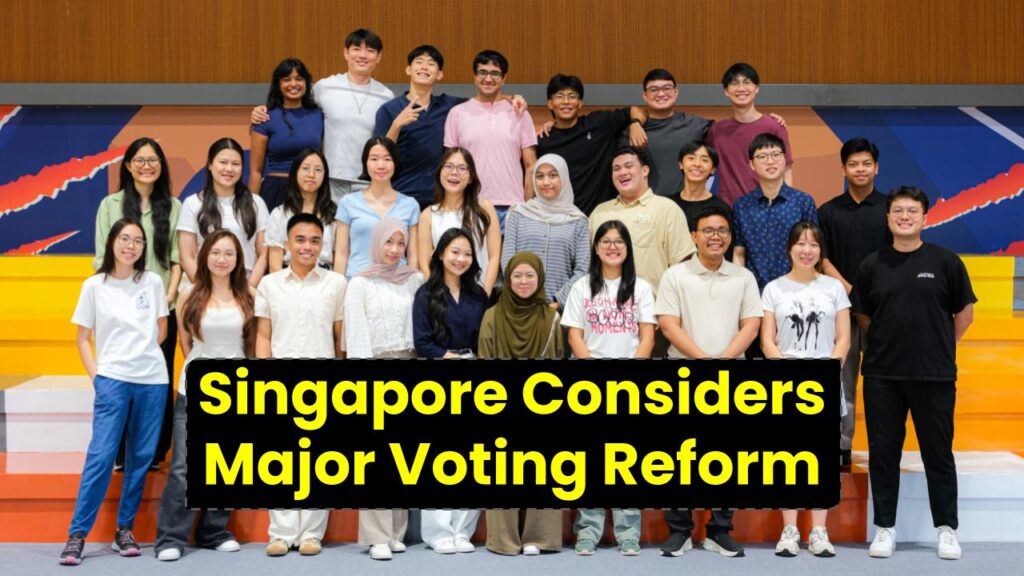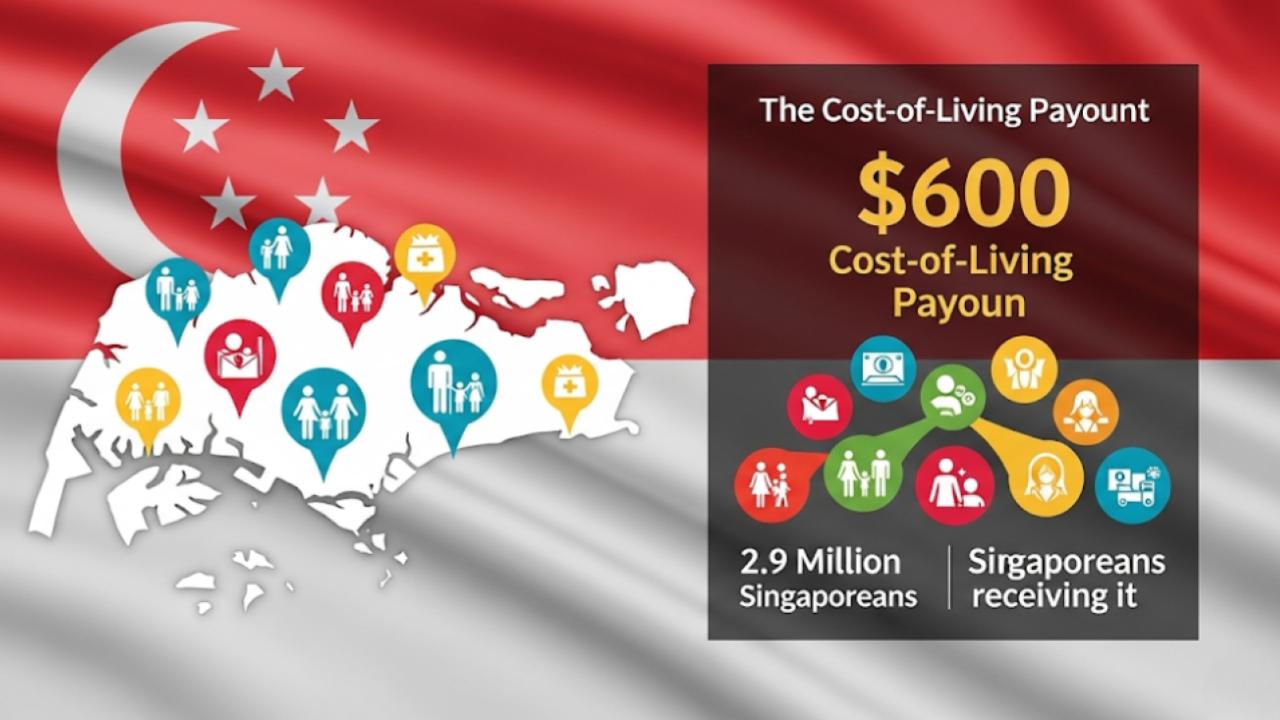Singapore considers major voting reform – could 18‑year‑olds head to the polls in 2025? Right off the bat, that’s the exact headline, so folks, let’s jump in. This conversation’s buzzed up lately: Singapore’s thinking of dropping its voting age from 21 to 18. That’d be a pretty big switch, especially for younger voices. Let me break it down for everyone—kids, parents, pros—so it’s crystal clear and grounded in real-deal info.

Singapore’s current voting age of 21 years old has been in place since the country’s early days. Now, there’s serious momentum behind lowering the age to 18. Why? Because 18-year-olds are already paying taxes, getting jobs, and joining the conversation about the future. They’re part of the fabric of society—but not part of choosing its direction. That’s starting to feel off in today’s world.
Singapore Considers Major Voting Reform
| Item | Details |
|---|---|
| Current Voting Age | 21 years old; eligibility based on being 21 by Feb 1, 2025 for the May 2025 GE |
| Proposed Reform | Lower voting age to 18 to align with international standards and youth contribution |
| Public Opinion | Surveys suggest a majority of youth and academics support voting-age reduction |
| Legal Requirement | Only a Parliamentary Elections Act amendment (requires simple majority) |
| Practical Timing | Too late for 2025; realistic implementation if passed by 2026 elections |
| Official Info | Refer to Singapore Elections Department |
| Why It Matters | Better representation, more engaged youth, stronger democracy |
Lowering the voting age from 21 to 18 is a big step—but it’s a necessary one for Singapore’s democracy. It honors the maturity, contributions, and voices of younger citizens. While it won’t happen in time for the 2025 election, the groundwork is being laid for future change. Real impact comes from staying informed, engaging actively, and voting smart once the time comes.
Why Lower the Voting Age?
1. Rights at 18 – It Feels Unequal
In Singapore and many other places, turning 18 means hitting adult milestones:
- National Service for men.
- Legal ability to sign contracts, vote in other countries, and face adult legal responsibility.
- Paying taxes, running businesses, and volunteering—all before you’re eligible to vote here.
That disconnect? It’s sparking concern: Why are people voting on issues that affect teens but not letting teens have their say?
2. Global Standards & Youth Involvement
Places like the UK, Australia, Canada, and large parts of the EU let 18-year-olds vote. That’s not all—they encourage youth engagement through civics education and youth parliaments. Bringing Singapore in line with these norms boosts global credibility—and pumps life into democracy.
3. Your Voice Matters
When young people vote, politicians pay attention. Want better mental health services? Cleaner buses? Affordable housing? Suddenly these stop being distant dreams and start showing up in manifestos. Every voice counts—especially the fresh, hopeful ones.
What the Research Tells Us
- NUS Survey (2024): Over 60% of Singaporean youth support lowering the voting age.
- Oxford Study (2023): Engaging teens in politics early improves civic participation long term.
- World Bank Data: Countries with younger voting ages often show higher youth turnout and trust in government.
These numbers aren’t just stats—they’re signs that healthy democracy can grow when more people participate.
How Singapore Could Do It (Step-by-Step Guide)
Step 1: Propose a Bill
A Member of Parliament (MP) tables a bill to amend the Parliamentary Elections Act, changing the voting age from 21 to 18.
Step 2: Consultation & Debate
MPs debate the pros and cons. They seek public feedback—through town halls, surveys, and youth group sessions.
Step 3: Parliamentary Vote
Since this is a law amendment (not a constitutional change), a simple majority (50%+1 vote) in Parliament suffices.
Step 4: Presidential Assent & Commencement
If Parliament approves, the President signs it. A commencement date gets announced—likely aligned with the next General Election.
Step 5: Electoral Roll Update
The Elections Department (ELD) updates voter lists to include 18–20-year-olds ahead of polling day.
Why It Can’t Happen for 2025
The May 2025 General Election is locked in. Voter registration was finalized by Feb 1, 2025, based on the age-21 requirement. That means:
- Even if the law changes tomorrow, it’s too late for 18-year-olds to vote in 2025.
- Realistically, the next General Election—whenever that may be—will be the first chance for younger voters.
Who’s Backing the Change?
- Assistant Prof. Elvin Ong (NUS): Calls it crucial to represent youth impact and satisfaction.
- Progress Singapore Party (PSP): Says voting age of 21 is “behind the times.”
- Youth Activists: Petitioning Parliament, rallying students—and pushing public debate.
These voices add real energy and legitimacy to the call for reform.
Practical Advice: What You Can Do
1. Follow the Conversation
Keep tabs on updates via the Elections Department and news outlets like The Straits Times.
2. Join Consultations
Check if there are public discussions or feedback sessions—many invite digital and in-person input.
3. Talk About It
Use respectful conversations in schools or clubs. Write op-eds, start petitions—help your peers get informed.
4. Learn Civics
Understand how elections, Parliament, and government decisions work. It’s easier to speak up when you grasp the system.
5. Vote When You’re In
If this change passes, register early, vote smart, and be a voice for your generation.
Examples: How Countries Did It
- UK (1969): Voting age reduced from 21 to 18 via Parliament. Since then, turnout among young voters has stayed steady.
- Austria (2007): Austria let 16-year-olds vote locally in some regions—youth turnout increased, and trust in policymakers rose.
- Germany: 18 is already the norm—political parties invest heavily in youth outreach.
These real-world stories show it’s not just theory—it works.
FAQs
Q1: Will lowering the voting age flood the ballot box?
A: Not at all. Turnout among 18–20-year-olds is typically moderate—but those who do vote tend to stay engaged long-term.
Q2: Could mature elephants take over?
A: Good question! But research shows 18-year-olds are financially knowledgeable and socially aware—grown-up enough to decide.
Q3: Won’t older voters drown out younger ones?
A: Voting power is equal—one person, one vote. Bringing more voices in doesn’t silence anyone; it balances representation.
Q4: Does Singapore have to do this?
A: No legal requirement, but globally, it’s a growing norm. Aligning with international peers makes sense.









